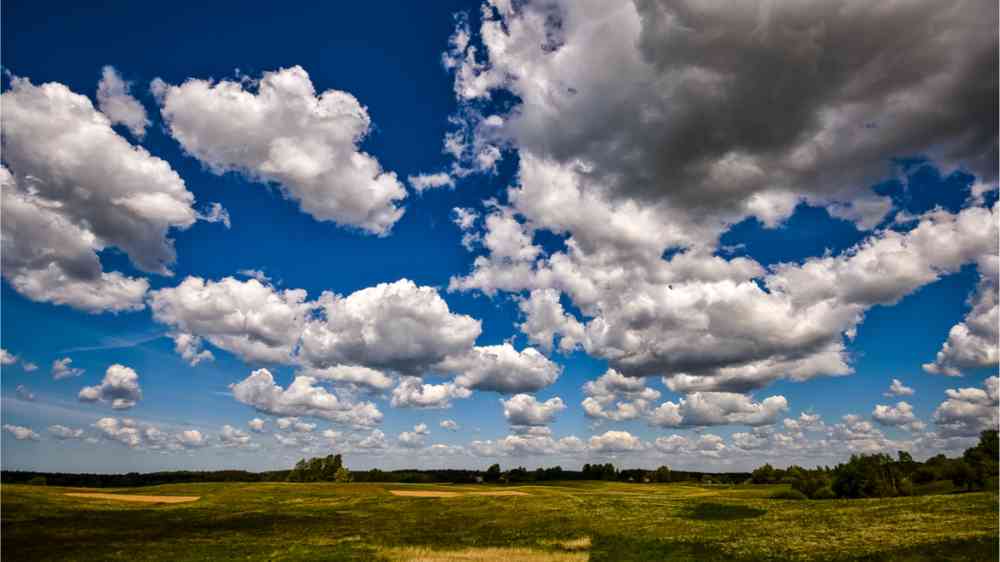Cloud brightening could have unintended effects in a warming world

Marine cloud brightening is a geoengineering technique aimed at combatting the effects of climate change. It involves spraying aerosols such as sea salt particles into clouds over oceans. These "brightened" clouds reflect more radiation back into space, allowing Earth to cool.
A new study in Nature Climate Change focused on the West Coast of the United States found that though marine cloud brightening (MCB) could bring some relief from summer heat exposure, its effectiveness diminishes under warmer temperature regimes.
The vulnerable west coast
The authors used the Community Earth System Model version 2 to simulate MCB in two places: off the coasts of California and the Aleutian Islands of Alaska. The decision to model these places was driven by the fact that they routinely experience heat waves.
Researchers simulated present-day conditions as well those of a "mid-century warming" forecast for around 2050.
They found that MCB under present conditions resulted in reduced summer heat stress across both California and the Aleutians.
But the 2050 simulations did not predict any cooling in the targeted regions and in other regions actually resulted in "exacerbated heat stress and hotter summers than predicted to otherwise occur under global warming," according to the authors. Regions affected by MCB during simulated mid-century warming in California and Alaska included northeastern Asia, Europe, and the central United States.
Far-reaching outcomes
"These results demonstrate how unintuitive marine cloud brightening can be because the desired impacts, which are the seemingly logical impacts, may not be the only impacts."
"These results demonstrate how unintuitive marine cloud brightening can be because the desired impacts, which are the seemingly logical impacts, may not be the only impacts," said Jessica Wan, first author of the study and a Ph.D. student at the Scripps Institution of Oceanography.
Govindasamy Bala, a professor at the Center for Atmospheric and Oceanic Sciences, Indian Institute of Science, also noted the unpredictable and far-reaching outcomes of MCB in a changing climate. Changes to atmospheric and ocean circulation patterns, as well as factors such as cloudiness, he said, made the side effects of MCB difficult to predict. "Because of these changes in the base climate," he explained, "unintended consequences are likely."
Bala, who was not involved in the new study, also noted that MCB could result in changes to phenomena as varied as marine plankton productivity and the timing and intensity of the Indian monsoon.
Limits of regional modeling
Some atmospheric scientists encouraged a nuanced approach when interpreting regional studies such as this one.
Haruki Hirasawa, a postdoctoral fellow in the Department of Atmospheric and Climate Science at the University of Washington who was not involved in the study, said the climate effect of regional MCB depends strongly on the location of the intervention, as evidenced in a 2009 study by researchers at Exeter University.
"I would caution against generalizing these results," Hirasawa said.
Hirasawa also added that simulated responses of the Atlantic Meridional Overturning Circulation (AMOC) to MCB under warming regimes "are diverse and often nonlinear."
AMOC is one of the most important transport pathways for ocean temperature and salinity to circulate from the poles to the equator. In the new study, the loss of effectiveness of MCB is primarily due to AMOC responses. And because there are uncertainties associated with modeled AMOC responses, Hirasawa said he would be wary of assuming that regional MCB will diminish in efficacy in a warmer world.
Another limitation of the new study is the historic lack of data from the Global South, said Robert Wood, a professor in the Department of Atmospheric and Climate Science, University of Washington, who was not involved in the research. Wood explained that historically, research in the MCB space has been "very limited to a small community of elite, senior scientists in the wealthiest nations with access to resources."
Developing nations, which are often more vulnerable to climate change, have resource constraints and therefore have a limited ability to project and analyze climate impacts for their regions. "We need to build modeling protocols and capacity that allow for data sharing and promote data use in the Global South," Wood added.